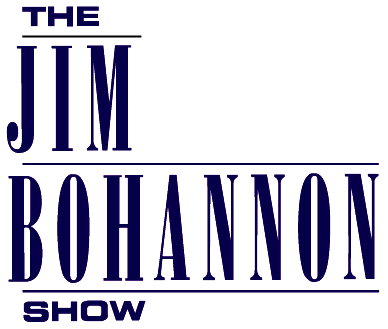Asia's Leadership
Today, the world’s fastest growing region is calling for greater leadership.
At present, around the world, in both government and business, we see a wider and wider difference between the skill, quality, and power of our leaders. Arguably, leadership, particularly in Asia, makes more of a difference today than at any point in recent history.
This is true because the stakes for the leaders of Asia are higher—and so, then, are the demands of leadership.
Look, for example, at three of Asia’s national leaders: China’s Xi Jinping, South Korea’s Park Geun Hye, and India’s Narendra Modi. Each came to power as change leaders. And each leads large nations facing big challenge at the very center of Asia’s future.
In China, Xi—by recent historical standards China’s most powerful leader—has begun to tackle corruption issues and has boldly pursued major figures who were previously considered “untouchable”—such as Zhou Yongkang, a former member of the Politburo Standing Committee, and General Xu Caihou, formerly of the Central Military Commission. So far, Xi’s approach has been to create strong institutions, drive economic growth, bolster China’s national security, expand its military presence, and begin the transition to apply rule of law even to the party’s most influential figures.
In South Korea, President Park is the first woman elected to Korea’s highest office and the first Korean president to be elected by majority. Her party’s recent by-election victory, winning a larger legislative majority, puts new pressure on Park—but also creates new opportunities. To date, Park has defined her leadership by both toughness and compassion. And her steeliness was born from challenge: Park’s mother was killed by an assassin as, similarly, was her father, who himself was one of Korea’s most staunch anti-Communist and tough-minded leaders.
On the other side of the coin, Park’s national apology about the handling of the MV Sewol ferry disaster, which left 302 people dead, brought her human side out and in front of the nation. Now, the key will be how Park mixes this toughness and compassion in improving rescue efforts for national disasters, rooting out corruption, managing North Korean military threats, and balancing the difficult elements of foreign relations with and between China, Japan, the US, and other nations in and out of Asia.
In India, Modi, elected on a transformation platform, must build now a foundation for India’s emergence as a global economic power. This means winning support for reform without undermining political stability or social cohesion—demonstrating that he is an inclusive leader capable of working with Indians outside of his own Hindu base, including the nation’s more than 150 million Muslims. And now, Modi’s challenge will be to drive economic reform and growth, build India’s infrastructure, and successfully manage his nation’s increasingly complicated foreign policy.
For all three of these Asian leaders—Xi, Park, and Modi—the challenges and opportunities will be historic. And ultimately, the success of China’s, South Korea’s and India’s leaders will hinge on how they answer the three strategic questions below.
First, can these Asian leaders transform their respective national systems?
This is where President Obama, who we advised in both the 2008 and 2012 presidential campaigns, is running up against the wall of history. For example, a recent Fortune magazine survey listed the world’s top 50 leaders and did not even mention the 44th President of the United States. Instead, the number one leader in the world today: Pope Francis.
To date, Pope Francis is a genuine transformation leader who is strategically and radically re-shaping the Catholic Church’s 2000-year-old culture, re-focusing the Vatican’s murky financial structure and using communications strategy and skills to rally global audiences to his simple, focused, and compelling message about fighting poverty and fixing inequality.
So today, the lesson in the political world, as in the corporate world, is that the only leaders succeeding are change leaders: Insurgents, focused on transforming an incumbent status quo and re-defining some part of the future. Today, more than ever, change is the fuel of great leadership. Pope Francis’ early and extraordinary success underlines this point.
Second, can these Asian leaders find and re-define a working political “center?”
In truth, around the world, governments tend to succeed when they find some measure of compromise that rises above the interests of their respective political extremes. For example, look at Mexican President Enrique Pena Nieto’s cross-party “Pact for Mexico,” and the way it has begun today to re-shape a national consensus. Look at President Ronald Reagan’s willingness to ultimately raise taxes in pursuit of America’s economic recovery in the 1980s. And look at President Bill Clinton’s Medicare reform and successful economic policy making in the 1990s. Around the world, find success in government and you will find a deal within the political center that has somehow risen above, or been raised above, the pulling and hauling of politics.
Third, can these Asian leaders continue to play more offense?
This is the all-critical question because, for example, the leadership lesson of Pope Francis is to constantly move onto the attack, against the status quo, against financial misspending, against an enemy that you yourself define.
Steven Jobs, a leader known for playing offense, literally invented our current company. Back in the 1980s, we were on our way to ultimately advising 16 winning global political campaigns. Back then, Jobs asked us to come talk to Apple about how to win a political campaign—because he loved the do-or-die reality of an election day, no excuses, no second chances. And Jobs loved the way we were advising insurgent candidates and helping them build insurgent strategies to play more offense.
This principle of insurgency has become even truer in 2014: Because of the dynamics of the information revolution and the power of exponential change. Today, it is no accident that the political and business leaders who are succeeding are change agents—playing offense against their respective status quos. For these successful leaders, this means controlling definitions—defining yourself and your leadership values, defining the “stakes” for change, and defining the future.
The next great leader of Asia will do all this: They will drive transformation, because global electorates remain increasingly dis-satisfied with their status quo; they will find and re-define a political center by rising above petty politics, because that is the only way government is working today; and they will play more and more offense, because history teaches us that this the way to lead greatly.
The great nations of Asia are calling for greater leadership. And the question is whether its leaders can heed this historic call.
David E. Morey is CEO of DMG Global, a strategic consultancy with offices in the US and across Asia. He is the author of the award-winning book The Underdog Advantage and is Adjunct Professor at the University of Pennsylvania. Morey has advised 16 winning global presidential campaigns and today works with the CEOs and leaders of some of the world’s largest companies.
 Romney gets personal, more likable
Romney gets personal, more likable The Point: The Underdog Advantage
The Point: The Underdog Advantage








